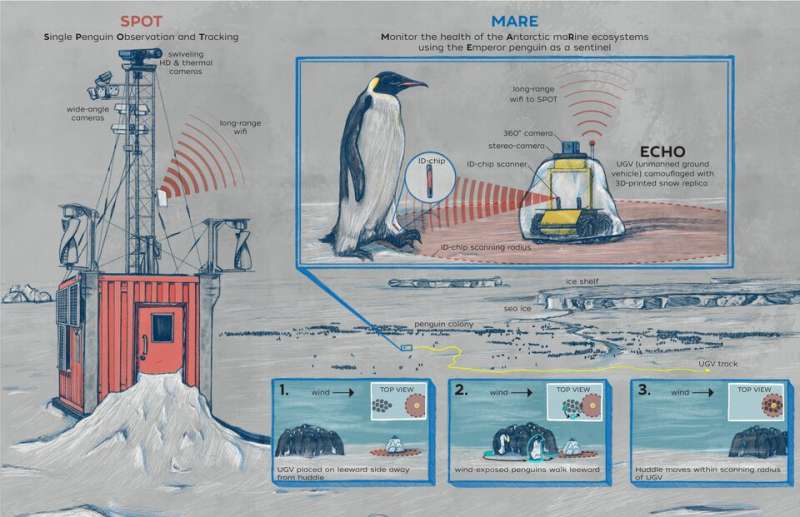This robot lives with an Antarctica penguin colony, monitoring their every move

Thousands of emperor penguins waddling around Antarctica have a stalker: A yellow rover tracking their every move.
ECHO is a remote-controlled ground robot that silently spies on the emperor penguin colony in Atka Bay. The robot is being monitored by the Single Penguin Observation and Tracking observatory. Both the SPOT observatory, which is also remote-operated through a satellite link, and the ECHO robot capture photographs and videos of animal population in the Antarctic.
The research is part of the Marine Animal Remote Sensing Lab (MARE), designed to measure the health of the Antarctic marine ecosystem.
The project, funded by the independent nonprofit Woods Hole Oceanographic Institution, focuses on emperor penguins' place on the food chain. In the Antarctic the food chain is relatively small and any change to a species that is lower in the food chain could impact the health of the emperor penguin (a predator). The team is hoping to learn more about how climate change might be impacting the animals that live in the Antarctic.
Little is known about emperor penguins, largely because of how challenging it is for scientists to study them in Antarctica, lead scientist Daniel Zitterbart told USA TODAY.
ECHO serves as a very slow-moving, battery-powered robot that through its antennas is able to capture the tag of each penguin. So far, it's been capturing data for eight weeks, according to Zitterbart.
"It's supposed to drive around by itself in the Antarctic, knowing where the penguins are and very slowly try to scan individual penguins or scan groups of penguins. That is how we know where penguins are," Zitterbart said.
Tracking the penguins also allows scientists to study penguin behavior over time, and see how they adapt.

Since 2017, researchers from MARE have been tagging 300 penguin chicks per year. They now have over 1,000 penguins tagged and the colony is composed of 26,000 penguins, according to Zitterbart.
MARE plans to monitor the penguins for the next 30 years with the first set of data being complete in 2026. The data will be analyzed to help determine the overall health of the Antarctic and how the penguins are adapting.
(c)2022 USA Today
Distributed by Tribune Content Agency, LLC.



















